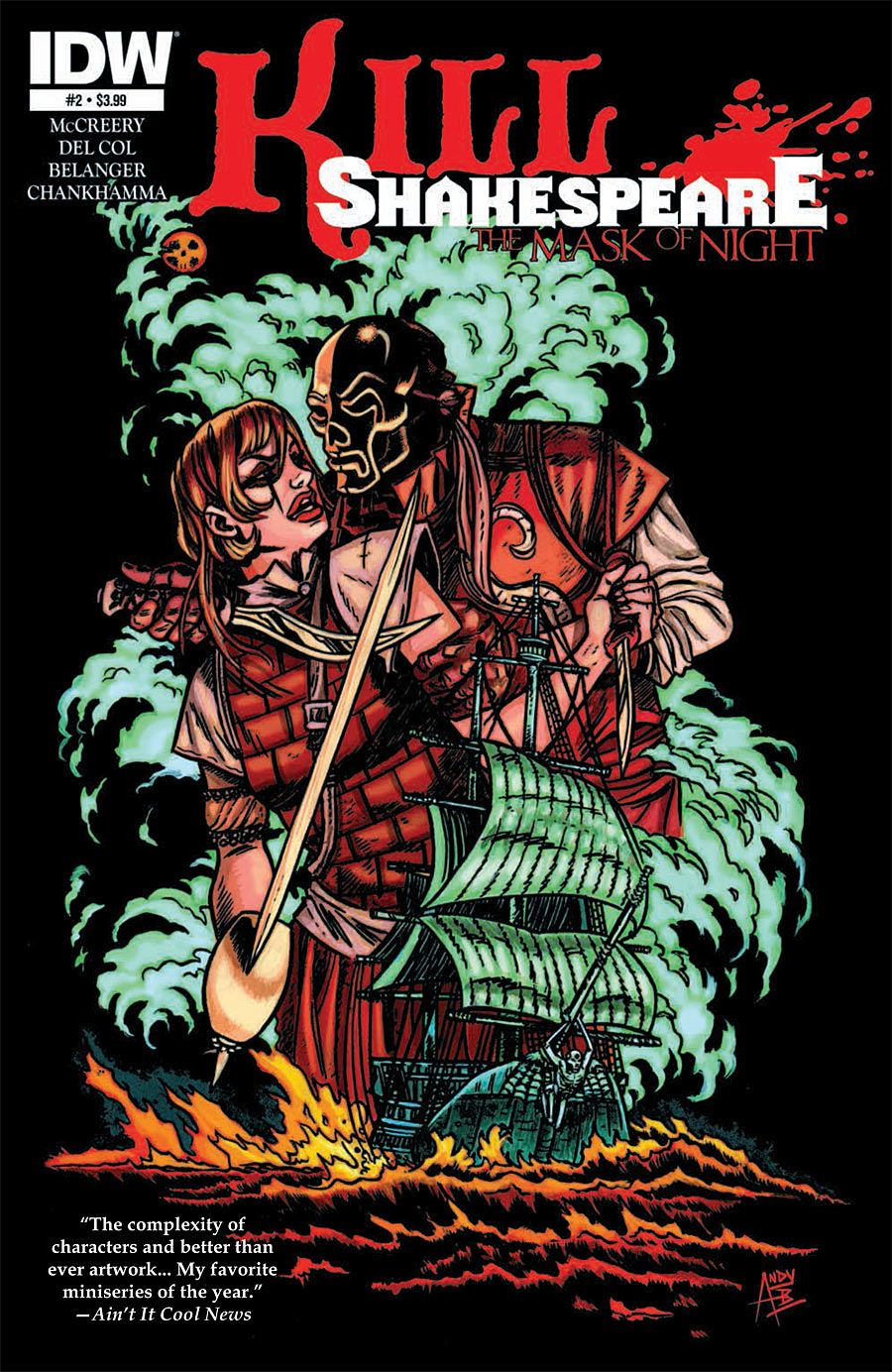"Kill Shakespeare: Mask of Night" #2 is a swashbuckling issue that really lets artist Andy Belanger stretch his visual storytelling muscles. It's mutiny aboard the Boreas, and the sword fights, stabbings and madness make for an exciting read. McCreery and Del Col can write a rousing story -- if not a particularly thought-provoking response to their source material.
This is probably my favorite issue from Belanger so far. He's left without dialogue for a good chunk of the issue, as the Boreas tries to silently slide by the Lavinia, and the resulting sequence of 3x3 grids is easy to follow and smooth to read. This is not a silence of anxious waiting and held breath; rather, it's an opportunity for the crew to reassess one another and the situation. Belanger's furtive glances feel busy and decisive, adding a different sort of tension to the scene. It's clear as the silence progresses that a consensus is being reached, even if the reader doesn't yet know what the consensus might be.
It all comes to a head quickly, and the dialogue is refreshingly to-the-point and succinct. Viola is perhaps the most well-imagined: impressively, viciously pragmatic, she's the most believably piratical of the crew. She behaves with convincing self-interest and anger, and she's a tough-to-achieve mix of human complexity and logical, understandable behaviors.
Juliet, Hamlet and Othello aren't given much to do, and the problematic tension between Hamlet and Juliet still isn't resolved. However, Viola and Cesario are so clearly the centers of attention in this conflict that it didn't bother me. Belanger's fight scenes are also an enjoyable distraction in the meantime; the swinging arms and headlocks feel visceral, even if some of the connecting blows feel cartoonier.
All the action and excitement aside, the character of Cesario suffers from what is admittedly a chronic issue for "Kill Shakespeare": sometimes the creators seem to want credit just for having read the play. Some of the allusions serve no thematic purpose outside of letting the reader know that McCreery and Del Col can quote "Twelfth Night" or name the characters in "Titus Andronicus." I love the liberties they take with the source material, but more thoughtfulness would sometimes be appreciated. In "Twelfth Night," Cesario is an androgynous identity that lets Viola escape gender limitations, sass counts and ladies, and even explore her own sexuality a bit. Here, Cesario is a bearded older man who wants to control her and confine her in traditional domesticity. There are hints of the original Cesario -- a mask that hearkens disguise, and the idea that Cesario, like Viola's taste of freedom "never dies" -- but the big picture doesn't feel like a thoughtful play on what it's alluding to. I'd rather that they went without the allusion than make it this way.
Still, if one takes "Kill Shakespeare" out of its pitch, it's an immensely enjoyable pirate adventure. The creative team is having a lot of fun, and it's a joy to be along for the ride.

